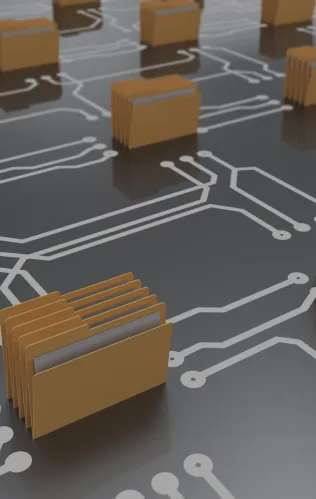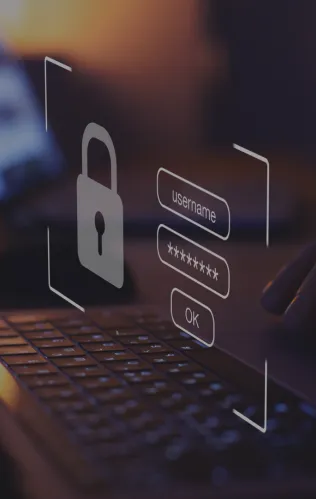In today’s fast-paced, technology-driven world, Learning Management Systems (LMS) and Student Information Systems (SIS) play a critical role in ensuring academic success for students across various educational institutions. These comprehensive systems not only streamline administrative processes but also enhance the educational experience for educators, administrators, students, and parents. This article explores the benefits of implementing a reliable LMS in your educational institution.
Learning Management Systems (LMS) are software applications that help educators, administrators and students in the classroom. They are designed to automate many processes involved in managing a class or program. Let’s examine some of the Learning Management Systems key advantages.

Effortless Collaboration and Communication
A well-designed LMS promotes seamless collaboration between educators, administrators, students, and parents, creating a conducive learning environment. The platform encourages a team effort, ensuring a better learning and teaching experience for everyone involved. Educators can work together on lesson plans, projects, or quizzes, while administrators can share information about students, course materials, student progress, and attendance. This is important because education is a team effort: the more people involved in the process of learning–and teaching–the better it will be for everyone involved.
LMSs can also help educators collaborate with each other on lesson plans or projects that benefit their entire class. For example, if one teacher wants to create an online quiz but doesn’t have time to do so , they can ask another teacher who has experience creating quizzes for help creating one that can be used by both classes at once without any additional work from either party involved except entering data into the system itself!
Robust Features for Enhanced Learning
An LMS system is designed to help teachers manage their courses by allowing them to create content for classes such as assignments or tests; provide feedback on student work; communicate with students via email; assign grades for completed assignments or tests; track student progress through the semester/year/course etc.
An effective LMS comes equipped with various features such as online tests and quizzes, gradebook tracking, and reporting tools. Instructors can easily create multiple-choice questions to assess students’ knowledge on specific subjects within a specified timeframe. The gradebook feature allows educators to track student performance data, making it simple to understand each student’s academic standing at any given time.
This information comes very handy when deciding which students require extra help while others might need additional guidance based on their performance levels during assignments handed out by lecturers who may also use these reports generated by LMS software platforms before providing feedbacks back onto learners who failed certain tasks assigned within deadlines set forth by administrators overseeing different departments within an educational institution’s faculties.
Keeping Stakeholders Informed
LMS can also help you keep all stakeholders informed about students’ progress in class. Parents can stay updated on their child’s academic performance, while teachers can monitor their students’ progress. Administrators and other faculty members can also stay updated on overall student progress and performance.
Efficient Class Management
A reliable LMS and SIS make class management easier for teachers. The platform enables educators to instantly observe student performance and identify those who need additional support or more challenging tasks. This helps educators address any knowledge gaps before proceeding with the course material.
Comprehensive E-Learning Programs
A well-implemented LMS manages e-learning programs and provides students with access to the content they need to complete their education. The platform allows educators to create engaging and effective interactive lessons, deliver them quickly, monitor student progress in real-time, and track the performance of individual students or groups based on specific tasks within the course material.
An LMS is a must-have tool for educators who want to make sure their students learn effectively while keeping costs at a minimum.
Performance Management and Best Practices
One of the main advantages of a robust LMS is their ability to improve performance management by offering a single platform where teachers and managers can monitor student progress and share best practices among other schools within the district.
Investing in a comprehensive Learning Management System is crucial for educational institutions that aim to ensure academic success for their students. These systems empower organizations to streamline their processes, improve collaboration and communication, and provide engaging learning experiences for students. Choose a reliable, secure, and efficient LMS to support your students in achieving their academic goals.
An LMS allows you to keep your students informed about their progress in the class. This gives them a chance to ask questions regarding any topic that they do not understand or need clarification on, which can ultimately lead to better understanding on their part, thus improving their grades and overall academic performance.
When selecting a learning management system, it’s essential to assess how successful it is in meeting its primary goal: reliably delivering educational content. A reliable LMS will provide data on how well the system is fulfilling this purpose.
Learning management systems are a great way to keep track of your students’ progress, and they can help you improve their performance. LMS’ come with many features that make it easy for teachers to manage their classes and ensure academic success. An LMS is a must-have tool for educators who want to make sure their students learn effectively while keeping costs at a minimum.
FAQ’s
An LMS promotes collaboration, enhances learning through robust features, keeps stakeholders informed about student progress, facilitates efficient class management, and offers comprehensive e-learning programs.
Look for features like online tests and quizzes, gradebook tracking, communication tools, progress monitoring, performance management, and the ability to share best practices among other schools within the district.
Classter’s LMS stands out with customizable learning paths, interactive content, real-time feedback, collaborative tools, comprehensive analytics, and seamless integration, empowering educators to create personalized learning experiences for academic excellence.






